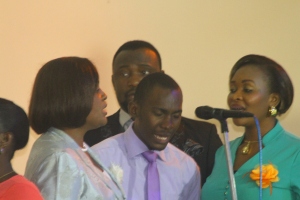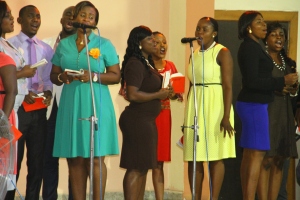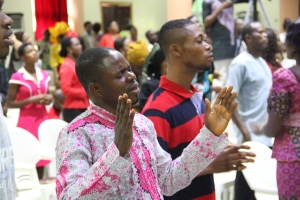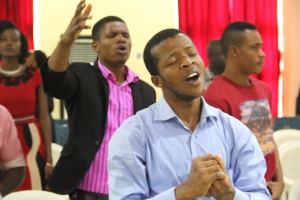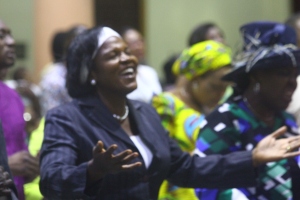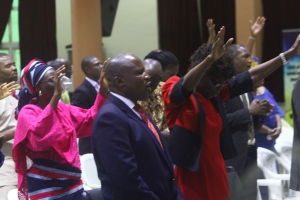Sunday 24 May 2015
Speaker: Pastor Austen Ukachi
In the Bible, the word “fire” features very prominently. What does fire mean? What does it represent? What does fire do? Does the heavenly fire have any relevance today? In the Old Testament, God is associated with fire and responded to the prayers and sacrifices of his people by fire (1 Chronicles 21:26; 2 Chronicles 7:1; 1 Kings18:36-38).
On Pentecost day, they were baptised by the Holy Spirit and with Fire. Today, as we celebrate Pentecost, one request we must make is the baptism of Fresh Fire. When the disciples contacted the Pentecostal fire, it transformed their lives and set them ablaze to preach the gospel, to do miracles, to boldly confronte the authorities, to speak in new tongues, etc. In this Laodicean age of the Church, when many are lukewarm, cold and apathetic to the things of God, we need God’s fresh fire to love Gid and to urge us to do the work of the Kingdom.
KINDS OF FIRE
There are two kinds of fire, the genuine and the fake. What we need is the real fire from heaven.
God is a consuming fire (Deuteronomy 9:3; Hebrews 12:29).
Fire represents the approval and presence of God. (1 Chronicles 21:26; 2 Chronicles 7:1).
Fire is an instrument of judgement (Leviticus 10:2; Numbers 11:1; Numbers 16:35).
Fire is a purifier (Malachi 3:2; Numbers 31:23; Ezekiel 22:20; Zechariah 13:9).
Fire is a symbol of God’s presence and power (Deuteronomy 4:36; 1 Kings 19:13; Acts 2:3; Acts 7:30; Hebrews 12:29).
THE APPEARANCES OF GOD IN FIRE
God appeared to Moses in a fire. God could have appeared differently, but chose to appear in a fire (Exodus 3:2).
At Sinai, God descended on the mountain in fire before the eyes of the children of Israel (Exodus 19:18).
In Exodus 24:17, the children of Israel described the appearance of God as a devouring fire. They could not stand God’s presence, so they asked Moses to go and meet with God (Exodus 20:18-19).
In Deuteronomy 9:3 and Hebrews 12:29 God is described as a consuming fire
In Ezekiel 1:26-28 the prophet likens God to fire.
Elijah’s encounter with the prophets of Baal teaches us something about the heavenly fire, namely:
A, The heavenly fire falls on a sacrifice that is presented on an altar (1 Chronicles 21:26; 2 Chronicles 7:1).
B. Not all prayer can attract the fire of God. The prayers of the prophets of Baal could not attract the genuine fire of God, but Elijah’s prayer did,
C, God responds through fire when broken altars are amended.
D, Sincere and genuine prayer attracts the fire of God.
E, The fire of God consumes sacrifices. What sacrifice are you willing to bring to the altar of God?
In the New Testament, John introduced Jesus as one who baptises with fire (Matthew 3:11-12). When the Holy Spirit came on the disciples on the day of Pentecost, it came as tongues of fire and they spoke with tongues (Acts 2:3). We need that same baptism so we can speak in new tongues. In Psalm 104:4, we read that God makes his ministers a flame of fire. God wants us to be fire bearers. When you carry the fire of the Holy Spirit, it affects you in every way. It affects your ministry, your preaching, your prayer life, the way we live. We need the fire of God in this Laodicean age.
HOW DO YOU CONTACT THIS FIRE?
First, we must mend the broken altars of your lives through repentance. The fire of God cannot fall on a life that lives in sin.
Secondly, pray fervently for the Holy Spirit’s fire.
Thirdly, cultivate the presence of the Holy Spirit through a lifestyle of holiness.
On this day of Pentecost, the greatest reward we can receive from God will be the ignition of our spirits with his Pentecostal fire such that our zeal and interest in God and his service will be renewed.

